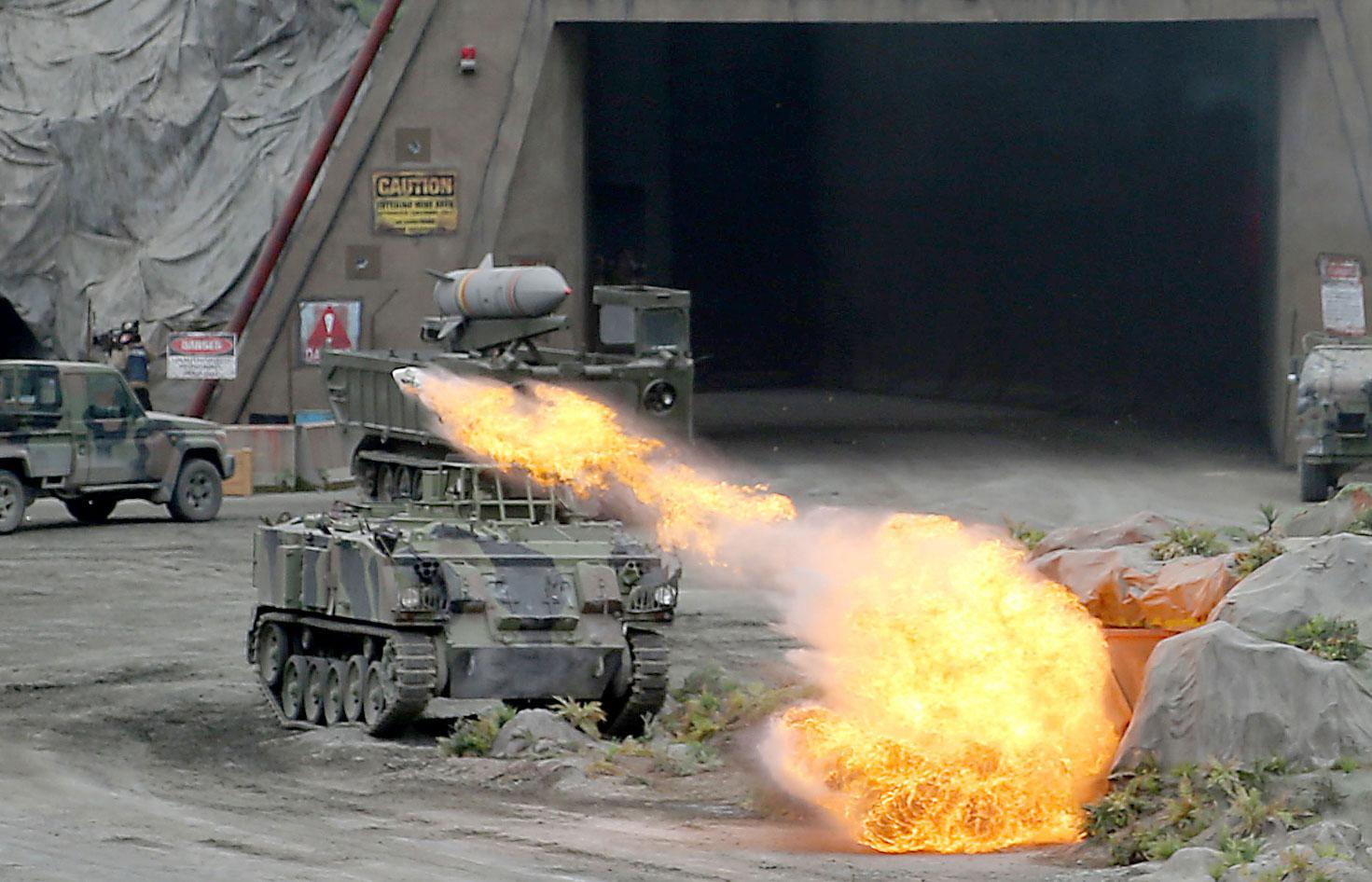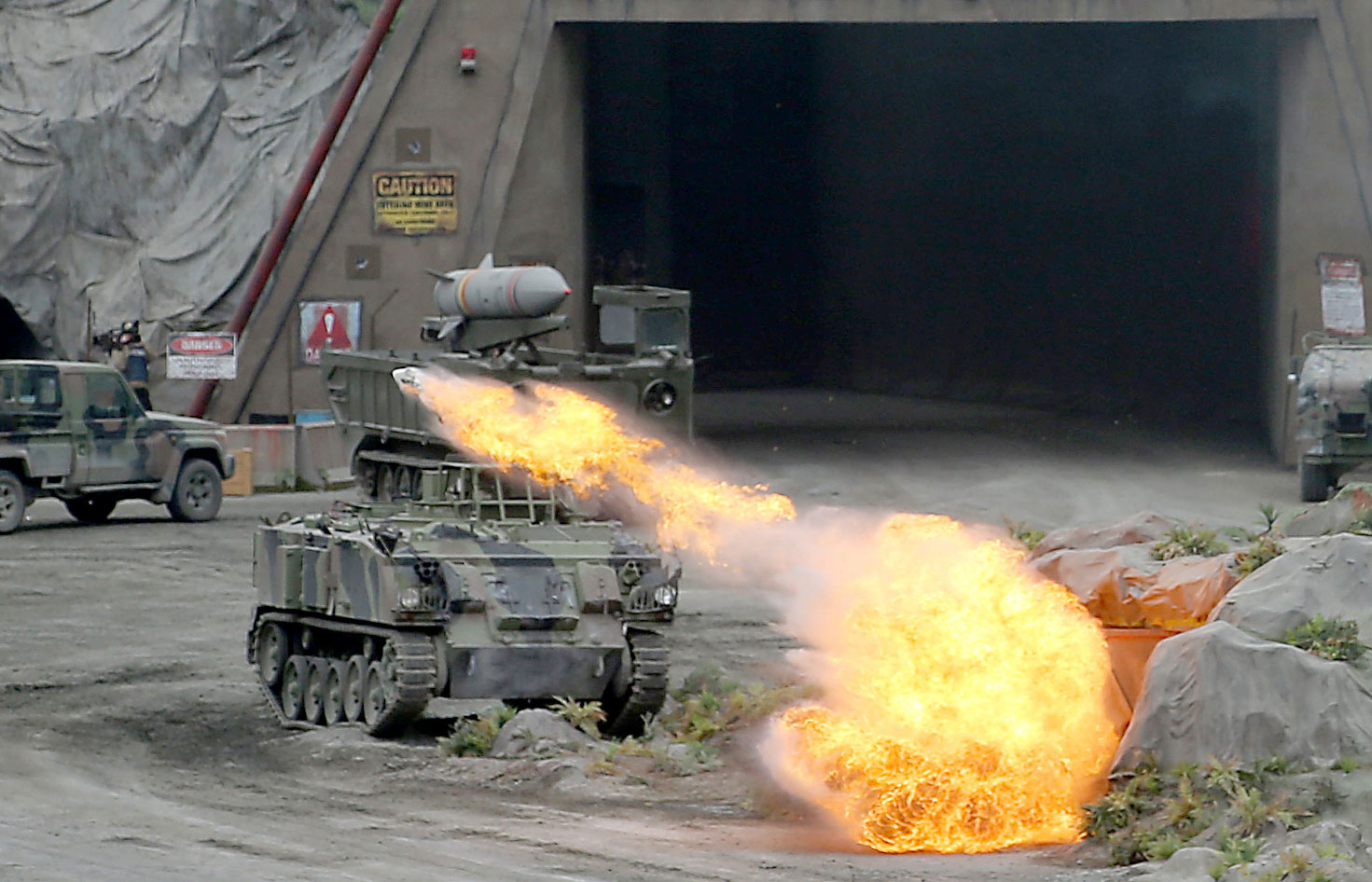UAE, Saudi sign arms deals amid Yemen scrutiny
ABU DHABI - The United Arab Emirates awarded 20 billion dirhams worth ($5.5 billion) of military procurement contracts during a defence show this week, at a time when arms sales to the country are under scrutiny due to its role in Yemen's devastating war.
The majority were awarded to international companies such as US firms Lockheed Martin and Raytheon, which sealed one of the biggest deals with 7 billion dirhams worth of contracts related to its Patriot missile air defence system.
Gulf Arab states including the UAE and Saudi Arabia have long been major buyers of US weapons but have beefed up military purchases in recent years from other countries. This week, the UAE awarded deals to firms from Russia, Turkey, Pakistan and South Africa at the five-day IDEX military exhibition.
Defence industry executives said other countries stand to benefit from increased scrutiny of Western arms sales to a Saudi-led coalition involved in the Yemen war. The conflict killed tens of thousands of people and pushed the poorest Arabian Peninsula country to the edge of famine.
The UAE and Saudi Arabia are leading a Sunni Muslim coalition, which includes Yemeni forces, that is battling the Iran-aligned Houthi movement to try to restore the internationally recognised government ousted from power in 2014.
Future decisions
Late last year, US lawmakers introduced various pieces of legislation seeking to put tighter controls on US dealings with Riyadh, including clamping down on weapons sales and barring military cooperation with the coalition.
IDEX takes place in the middle of one of the most defense-minded regions in the world, as the Middle East accounts for around 20 percent of global expenditure on defence imports. US exporters account for about half that total.
Military spending has been largely protected from cuts in government budgets since the fall in the oil price in 2014, and many regional states are manufacturing larger proportions of the required military equipment themselves to lessen the reliance on traditional heavyweights of the defence industry.
Saudi Arabia signed agreements this week at IDEX to develop its domestic defence industry as the kingdom, the world's top oil exporter, seeks to diversify its economy away from oil.
Saudi Arabian Military Industries (SAMI), the kingdom's state defence company, signed partnerships with France's Naval Group, Spain's Navantia, and Abu Dhabi state fund Mubadala.
SAMI, established in May 2017, seeks to localise 50 percent of military spending by 2030 as part of Crown Prince Mohammed bin Salman's economic diversification plan.
The IDEX show took place amid an increase in military spending by the six countries of the GCC and the wider MENA region.
The Gulf's spending on military procurement is forecast to grow 15 per cent to $17 billion in 2023. Overall defence spending by Gulf countries is forecast to increase $110.86 billion by 2023 from $103.01 billion in 2019.
Yemen scrutiny
Some countries like Denmark and Germany last year suspended future approval of arms exports to Saudi Arabia following the murder last October of Saudi journalist Jamal Khashoggi at the kingdom's Istanbul consulate and over the Yemen conflict.
Leading British defence contractor BAE Systems said German moves to block exports to Saudi Arabia could damage its major deals with the country and weigh on its financial performance.
BAE said it was reliant on the approval of export licences by a number of governments in order to continue supplies to Saudi Arabia.
"The position on export licensing currently adopted by the German government may affect the group's ability to provide the required capability to the kingdom," it said in its annual financial results on Thursday, adding it was working with British authorities to minimise the risk.
Shares in BAE slid 6.2 percent, with two traders attributing the share price weakness to the comments on Saudi Arabia.
Germany is part of the consortium that builds the Eurofighter Typhoon, a fighter jet that BAE has sold to Saudi Arabia, through Airbus and MTU Aero Engines.
Germany's government is trying to halt weapons exports to Saudi Arabia over the killing of Khashoggi, but Britain has urged the country to exempt big defence projects or face damage to its commercial credibility.
On Wednesday, Germany's foreign minister said that future decisions on delivering arms to Saudi Arabia will depend on how the conflict develops in Yemen, while members of Britain's upper house of parliament last week warned that arm sales to Saudi Arabia could be on the "wrong side" of international law due to the Yemen conflict.
BAE makes 14 percent of its annual sales from selling arms to Saudi Arabia and the tensions have raised questions about the UK government's 10 billion pound deal to sell Saudi Arabia 48 new Typhoons.
An industry source said that in addition to the 48 new aircraft, Germany is also blocking spare parts, so BAE is close to grounding the existing fleet of 72 Typhoons already in the kingdom.



